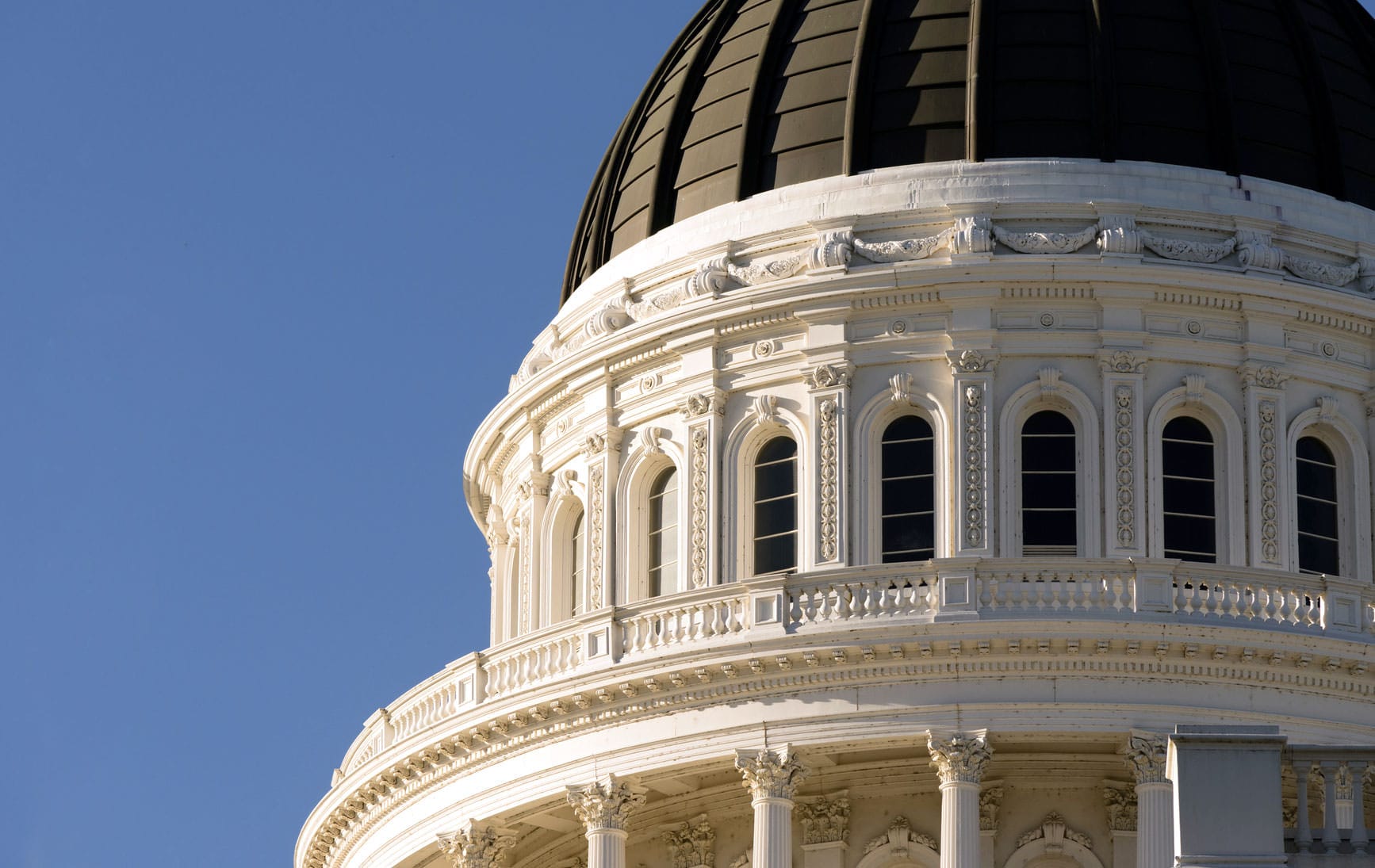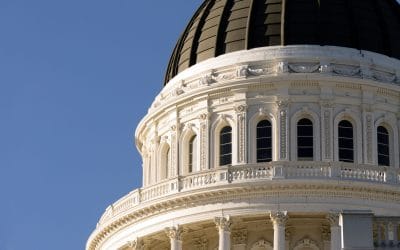Capitol Advisors Group has produced a series of comprehensive client briefs detailing new education laws that were passed by the Legislature and signed into law by Governor Brown in 2017. Each brief is organized by subject area and includes an executive summary highlighting major changes we think you should know about. Bills signed by the Governor take effect on January 1, 2018, unless the bill specifically states otherwise. A PDF version of this report is available here.
In the broad category of governance and operations, one of the most politically-charged subject areas is charter schools. After several years of no significant changes to charter school law, the Legislature passed and Governor Brown signed AB 1360 by Assembly Member Rob Bonta (D-Alameda). The bill adds new requirements for charter school suspension/expulsion policies and clarifies admissions preferences and parental involvement policies.
The bill passed out of the Legislature with nearly unanimous bi-partisan support. The final Senate floor vote was 34-6. The final floor vote in the Assembly was 70-8. The bill was sponsored by an array of civil rights organizations (ACLU, Public Advocates, Alliance of Boys and Men for Color, and Public Counsel) and public employee unions, including the California Teachers Association (CTA), California Federal of Teachers (CFT), and California School Employees Association (CSEA). The bill also enjoyed the support of the California Charter School Association (CCSA), State PTA, and the Association of California School Administrators (ACSA). The only opposition was from the Charter Schools Development Center.
Specifically, AB 1360 does the following:
- Adds a requirement that charter petitions contain a description of procedures for suspending and expelling students, or otherwise involuntarily removing them from the charter school. The procedures, at a minimum, must include a description of how the charter school will comply with state and federal constitutional and due process requirements, including the following:
- For suspensions of fewer than 10 days, provide oral or written notice of the charges against the pupil and, if the pupil denies the charges, an explanation of the evidence that supports the charges and an opportunity to present his or her side of the story
- For suspensions of 10 days or more and all expulsions for disciplinary reasons, ensure the provision of both of the following:
- Timely, written notice of the charges against the pupil and an explanation of the pupil’s basic rights
- A hearing adjudicated by a neutral officer within a reasonable number of days at which the pupil has a fair opportunity to present testimony, evidence, and witnesses and confront and cross-examine adverse witnesses, and at which the pupil has the right to bring legal counsel or an advocate
- A clear statement that no pupil shall be involuntarily removed by the charter school for any reason unless the parent or guardian of the pupil, or educational rights holder in the case of a pupil who is a foster child or homeless, has been provided written notice of intent no less than five schooldays before the effective date of the action and requires:
- The written notice must be in the native language of the pupil or the pupil’s parent, guardian, or educational rights holder
- The pupil must be informed of his or her right to request a hearing before the effective date of the action
- If the pupil’s parent, guardian, or educational rights holder initiates a request to hold a hearing, the pupil must remain enrolled until the charter school issues a final decision
- Clarifies priority and preferences for student admissions to charter schools if the number of pupils seeking enrollment exceeds the charter’s capacity. Specifically, the priority order must be contained in the charter petition in accordance with the following:
- Each type of preference shall be approved by the chartering authority at a public hearing
- Preferences shall be consistent with federal law, the California Constitution, and Education Code Section 200
- Preferences shall not result in limiting enrollment access for pupils with disabilities, academically low-achieving pupils, English learners, neglected or delinquent pupils, homeless pupils, or pupils who are economically disadvantaged, as determined by eligibility for any free or reduced-price meal program, foster youth, or pupils based on nationality, race, ethnicity, or sexual orientation
- Enrollment preferences shall not require mandatory parental volunteer hours as a criterion for admission or continued enrollment
- Requires a school district to provide charter schools with the pupil’s cumulative record, grades/report cards and health information within 30-days of a student enrolling at the charter school, if he/she was expelled or left the school district without graduating or completing the school year, for any reason, and enrolls in a charter school.
- Establishes that a charter school may encourage parental involvement, but shall notify parents that parental involvement is not a requirement for continued enrollment or acceptance into the charter school.
No state law codification of federal Title IX guidelines. A bill dealing with Title IX gender equity and anti-discrimination, SB 169 by Senator Hannah-Beth Jackson (D-Santa Barbara), enjoyed fairly strong bi-partisan support in the Legislature but was vetoed by the Governor. The bill sought to ensure that existing policies and procedures in California are at least as robust as federal requirements, and that state law will remain robust even if federal laws and regulations are weakened in the future. For the most part, the bill would have added new sections to the Education Code that mirrored federal “guidelines” that were articulated in a 2011 guidance letter issued by the Department of Education’s Office of Civil Rights (OCR), the agency that is primarily responsible for enforcing Title IX regulations. SB 169 would have inserted elements of this letter into the California Education Code and, more generally, directed the state’s educational institutions to adopt policies and procedures that comply with the letter. Among the more specific changes to existing law, this bill would have added a detailed category of “sexual violence” to the definition of “sexual harassment” for purposes of the Education Code, to include “sexual violence,” and would have required schools to designate an employee to act as “gender equity officer,” who would be charged with ensuring compliance with the provisions of this bill. Because the author and sponsors felt that current Title IX guidelines represent particularly strong and comprehensive standards, they sought to codify these standards in state law. The sense of urgency to do so was based, in part, on the fear that the Trump Administration may seek to diminish Title IX standards and undermine student protections.
Although Governor Jerry Brown vetoed the bill, he issued a lengthy message explaining his support for Title IX protections and the reasons he felt further discussions and assessments were needed before changing California law. Governor Brown’s main concern was the potential impact of SB 169 on college sexual assault policies. He stated:
“This is not a simple issue. Sexual harassment and sexual violence are serious and complicated matters for colleges to resolve. On the one side are complainants who come forward to seek justice and protection; on the other side stand accused students, who, guilty or not, must be treated fairly and with the presumption of innocence until the facts speak otherwise. Then, as we know, there are victims who never come forward, and perpetrators who walk free. Justice does not come easily in this environment.
That is why in 2014 I signed into law the first affirmative consent standard in the country for colleges to adopt in their sexual assault policies, so that clear and basic parameters for responsible behavior could be established…
Since this law was enacted, however, thoughtful legal minds have increasingly questioned whether federal and state actions to prevent and redress sexual harassment and assault – well-intentioned as they are – have also unintentionally resulted in some colleges’ failure to uphold due process for accused students…
Given the strong state of our laws already, I am not prepared to codify additional requirements in reaction to a shifting federal landscape, when we haven’t yet ascertained the full impact of what we recently enacted…
It is time to pause and survey the land.
I strongly believe that additional reflection and investment of time in understanding what is happening on the ground will help us exercise due care in this complex arena. I intend to convene a group of knowledgeable persons who can help us chart the way forward.”
Expect further discussions of this important issue next year.
California statewide primaries will move up to March. In an attempt to increase the State’s relevancy in presidential elections and draw candidates to the state to campaign, Governor Brown signed SB 568 by Senator Ricardo Lara (D-Bell Gardens), requiring, starting in 2019, all statewide primaries to be held on the first Tuesday after the first Monday in March.
The Governor signed the following bills related to school governance and operations this year:
Charter Schools
- AB 1360 (Bonta) – Charter schools: pupil admissions, suspensions, and expulsions
The only charter school bills signed into law in 2017, this bill expands the procedures that must be included in a charter school petition related to when pupils may be involuntarily removed from the charter school (suspended or expelled), authorizes additional charter school admissions preferences, and requires charter schools to notify parents that parental involvement is not a requirement for acceptance or continued enrollment at the charter school.
Chapter 760, Statutes of 2017
District Boundaries/Student Transfers
- SB 344 (Bradford) – School attendance: interdistrict attendance
This bill extends to July 1, 2023, the sunset date for the statute which authorizes the Los Angeles County Office of Education (the only class 1 county) to determine, within 60 calendar days, whether a pupil who has filed an interdistrict appeal should be permitted to attend in the district in which the pupil desires to attend. The bills also extends to July 1, 2019, the sunset date for the statute which authorizes class 2 county offices of education, with countywide ADA greater than 180,000, to determine, within 45 calendar days, whether a pupil who has filed an interdistrict appeal should be permitted to attend in the district in which the pupil desires to attend. The following counties are considered class 2 counties and would qualify for the timeline change/extension: Alameda, Fresno, Orange, Riverside, Sacramento, San Bernardino, San Diego, San Joaquin, and Santa Clara.
Chapter 461, Statutes of 2017 - SB 455 (Newman) – Pupil enrollment: military dependents
SB 455 modifies residency requirements for school attendance for active-duty military families by deeming that a student meets residency requirements for school attendance in a school district if the student’s parent is transferred or is pending transfer to a military installation that is anywhere within the state, instead of within the boundaries of the receiving school district.
Chapter 239, Statutes of 2017
Elections
- AB 195 (Obernolte) – Local initiative measures: ballot printing specifications
Current law requires that the ballots used when voting upon a proposed county, city, or district ordinance submitted to the voters as an initiative measure have printed on them a specified statement describing the nature of the proposed ordinance. This bill extends these requirements to any measure submitted to the voters that is proposed by a local governing body or submitted to the voters as an initiative or referendum measure. It also requires the statement describing the measure to be a true and impartial synopsis of the proposed measure.
Chapter 105, Statutes of 2017 - AB 249 (Mullin) – Political Reform Act of 1974: campaign disclosures
This bill repeals the requirement that a committee that supports or opposes ballot measures to name and identify itself using a name or phrase that clearly identifies the economic or other special interests of its major donors of $50,000 or more. AB 249 requires an advertisement that is paid for by a recipient committee and that supports or opposes a candidate or ballot measure to include the words “committee major funding from” followed by the names of the three top contributors of $50,000 or more to the committee. This disclosure requirement does not apply to advertisements paid for by a political party committee or a candidate’s own campaign committee.
Chapter 546, Statutes of 2017 - AB 765 (Low) – Local initiative measures: submission to the voters
AB 765 eliminates the requirement that a special election be held to vote on a local initiative measure if certain conditions are met, and instead generally requires for the measure to be submitted to voters at a regularly scheduled election unless the governing body of a county, city, or district calls for a special election.
Chapter 748, Statutes of 2017 - AB 837 (Low) – No party preference voters: partisan primary elections
This bill requires the Secretary of State (SOS), county elections officials, and members of a precinct board to provide to voters who have declined to disclose a political party preference information regarding their ability to vote on a political party’s ballot at a partisan primary election, provided the political party has authorized voters who have declined to disclose a political party preference to vote in the partisan election.
Chapter 819, Statutes of 2017 - AB 840 (Quirk) – Elections: vote by mail and provisional ballots
AB 840 permits a voter who did not sign his or her vote by mail identification envelope to return a completed unsigned ballot statement to the local elections official by email. The bill also requires an elections official to provide the official’s mail address on the website containing the unsigned ballot statement instructions.
Chapter 820, Statutes of 2017 - AB 918 (Bonta) – California Voting for All Act
This bill significantly expands the availability and accessibility of facsimile ballots in languages other than English in situations where such fax ballots are required to be made available pursuant to existing law. It also requires various signage and postings at polling places to inform voters of the resources available in other languages.
Chapter 845, Statutes of 2017 - AB 1104 (Chau) – The California Political Cyberfraud Abatement Act
AB 1104 expands the definitions of “political cyberfund” and “political web site” under the California Political Cyberfraud Abatement Act to include websites that urge or appear to urge the support or opposition of candidates for public office.
Chapter 715, Statutes of 2017 - AB 1194 (Dababneh) – Elections: local bond measures: tax rate statement
This bill requires the fiscal statement that is required to be included in the sample ballot for local bond measures to include the best estimate from official sources of the average annual tax rate that would be required to be levied to fund the bond issue over the entire duration of the bond debt service, and to identify the final fiscal year in which the tax is anticipated to be collected.
Chapter 795, Statutes of 2017 - SB 568 (Lara) – Primary elections: election date
This bill, beginning in 2019, changes the date of the statewide direct primary and the presidential primary to the first Tuesday after the first Monday in March and continues the requirement that the presidential primary be consolidated with the statewide direct primary.
Chapter 335, Statutes of 2017 - SB 665 (Moorlach) – Elections: ballot measures
This bill would require an organization or association submitting an argument for or against a statewide, county, city, or school district measure to also submit additional information to the appropriate official to enable that official to determine if it qualifies as a bona fide association of citizens.
Chapter 75, Statutes of 2017
General Governance and Operations
- AB 23 (Ridley-Thomas) – Educational programs: single gender schools and classes
This bill authorizes the Los Angeles Unified School District (LAUSD) to maintain any single gender schools and classes that were enrolling pupils as of July 1, 2017 but prohibits the District from establishing any new ones. Single gender classes or schools must meet certain criteria, including that the single gender aspect of the class or school serves an important LEA objective which is implemented in an evenhanded manner.
Chapter 654, Statutes of 2017 - AB 261 (Thurmond) – School districts: governing boards: pupil members: preferential voting
If a school district governing board appoints student members to sit on the board, this bill requires that those student members have preferential voting rights. A preferential vote is advisory only and does not count in determining the outcome of a vote.
Chapter 257, Statutes of 2017 - AB 522 (Cunningham) – Alcoholic beverages: nonprofit corporations: raffles
This bill allows a nonprofit corporation that has been issued a special temporary on-sale or off-sale beer or wine license pursuant to the Alcoholic Beverage Control Act, and that has also obtained a raffle registration from the Department of Justice, to offer, provide, or award alcoholic beverages as a prize in a raffle. Note that this bill does not change current law with respect to the use of school facilities.
Chapter 444, Statutes of 2017 - AB 660 (Rubio) – Public agencies: unlawful interference
AB 660 expands the crime of trespass to include interfering with a lawful business carried on by a public agency open to the public by knowingly making a material misrepresentation of the law to those attempting to transact business with the agency and refusing to leave. This bill is directed to complaints related to solicitors at county clerk offices.
Chapter 381, Statutes of 2017 - SB 31 (Lara) – California Religious Freedom Act: state agencies: disclosure of religious affiliation information
This bill directs California state and local governments to refrain from initiating, participating in, or assisting with any program to create a religious list, registry, or database, or using information about people’s national origin or ethnicity to achieve the same basic purpose. SB 31 does not prevent the collection, retention or disclosure of information or documents when required by federal law or a court order. An agency or employee would only be deemed in violation of the Act’s provision if the agency or employee shared the information with the actual knowledge that it would be used for purposes prohibited by the Act.
Chapter 826, Statutes of 2017 - SB 228 (Dodd) – Alcoholic beverage control: public schoolhouses
SB 228 will permit the sale, possession, or consumption of beer on the grounds of a public schoolhouse for beer that is produced by a brewery owned or operated as part of an instructional program in brewing, if a license has been issued by the Department of Alcoholic Beverage Control. Current law provides other exceptions to the prohibition on the sale or consumption of alcoholic beverages on school grounds, including for wine produced by a bonded winery owned or operated as part of an instructional program in viticulture or enology.
Chapter 119, Statutes of 2017 - SB 468 (Leyva) – School districts: governing boards: pupil members
This bill specifies that the student member of a school district governing board must receive all open meeting materials at the same time they are presented to the board members. Additionally, SB 468 requires the student member to be invited to staff briefings of board members or be provided a separate staff briefing within the same timeframe as the staff briefing of board members.
Chapter 283, Statutes of 2017
PRA/Gov Code 1090
- AB 187 (Gloria) – Political Reform Act of 1974: local ballot measure contribution and expenditure reporting
The Political Reform Act of 1974 is amended to require a recipient campaign committee that makes contributions or independent expenditures of $5,000 or more, in support of or in opposition to the qualification of a local initiative or referendum measure, to file a campaign disclosure report. Existing law applies this rule only to state initiatives or referenda.
Chapter 183, Statutes of 2017 - AB 551 (Levine) – Political Reform Act of 1974: postemployment restrictions
The Political Reform Act of 1974 prohibits elected and other specified local officials who held positions with a local government agency, from acting as compensated agents, attorneys, or representatives, before that same local government agency for a period of one year after the official leaves his or her position. This bill would specify that the one-year prohibition applies to independent contractors of a local government agency or a public agency who are appearing or communicating on behalf of that agency.
Chapter 196, Statutes of 2017 - AB 867 (Cooley) – Political Reform Act of 1974: contributions
This bill makes technical changes to the definition of terms related to “contributions” in the Political Reform Act.
Chapter 749, Statutes of 2017 - AB 895 (Quirk) – Political Reform Act of 1974: campaign statements: filing
This bill eliminates the requirement for entities that file campaign statements online or by electronic means to file a copy of those statements in a paper format, pending a determination of the Secretary of State that the state’s online and electronic disclosure systems are operating effectively.
Chapter 111, Statutes of 2017 - SB 45 (Mendoza) – Political Reform Act of 1974: mass mailing prohibition
The Political Reform Act of 1974 prohibits sending mass mailings at public expense. The act defines “mass mailing” as over 200 substantially similar pieces of mail not including form letters or other mail that is sent in response to an unsolicited request, letter, or other inquiry. This bill codifies the Fair Political Practices Commission (FPPC) regulation regarding mass mailings sent at public expense and prohibits these mass mailings from being sent within the 60 days preceding an election by or on behalf of a state or local candidate whose name will appear on the ballot.
Chapter 827, Statutes of 2017
Student Discipline
- AB 667 (Reyes) – Pupil discipline: suspension: informal conference
This bill requires that, during the mandatory informal conference, a school principal or district superintendent of schools inform a pupil who is being suspended of the other means of correction that were attempted prior to the suspension.
Chapter 445, Statutes of 2017




0 Comments